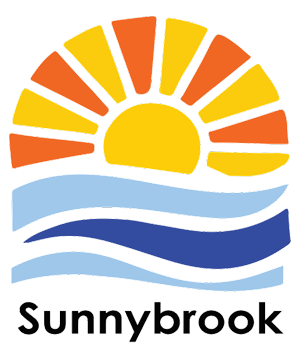In recent years, there has been a growing chorus of voices advocating for the inclusion of personal finance education in high school curriculums. As the landscape of financial decision-making becomes increasingly complex, there is a heightened awareness of the need to equip young adults with the knowledge and skills to navigate their financial futures successfully.
But what do high school students themselves think about adding personal finance to their school curriculum? Survey says they want to learn!
When polled, “Intuit’s Financial Education survey found that 85% of U.S. high school students said they’re interested in learning about financial topics at school and that 95% of those who currently receive a financial curriculum find it helpful.”
U.S. high schoolers want financial education, but many schools don’t offer it, says FOX Business in response to Intuit’s survey which found that students and parents alike want financial literacy to be taught in schools.
Let’s explore how Sunnybrook is supporting our youth with financial literacy to combat poverty and socioeconomic injustice in Mississippi while serving adolescent minds with the information they want and the knowledge they need for a better future!
Cultivating Financial Fluency for High School Students
High school students are keenly aware of the importance of personal finance in their lives. As they prepare to transition into adulthood, they face a myriad of financial decisions, from managing student loans and credit cards to planning for higher education and entering the workforce.
Many students recognize that the financial choices they make now will have a profound impact on their future financial well-being, making personal finance education highly relevant and valuable.
According to the Intuit Financial Education study, the top three things high school students want to know about managing their finances is:
- How to become wealthy (43%);
- How to save money (40%);
- How to avoid debt (37%).
Ultimately, as high school students prepare for the future, they view personal finance education as an area that defines their future success and well-being. They understand that the financial decisions they make now can have far-reaching consequences and that acquiring financial literacy skills early on will pay dividends throughout their lives.
Addressing The Knowledge Gaps in Financial Education
The interest from high school students to learn about personal finance in school is clear and compelling. They recognize the relevance and practicality of personal finance education, the empowerment and independence it provides, and the importance of addressing knowledge gaps to prepare them for their future.
Despite the enthusiasm for personal finance education, many high school students feel that they lack sufficient knowledge in this area. They feel uneducated and ill-prepared for the financial realities they will face as adults.
As a result, there is a strong appetite for more comprehensive and structured financial literacy education in schools. Students want to learn not only the basics but also more advanced topics such as investing, taxes, and retirement planning.
By advocating for greater emphasis on personal finance education, Sunnybrook is preparing students to not only look out for their own interests but also to become contributing members to the financial health and stability of future generations.
Through coursework like Faith & Finance, we are able to equip students with the knowledge and skills they need to thrive in an increasingly complex financial world.
Empowering Adolescents Through Financial Literacy
In today’s fast-paced world, where financial decisions are integral to everyday life, the importance of financial education cannot be overstated, especially for young adolescent teenagers. Equipping them with the knowledge and skills to navigate the complexities of personal finance not only fosters responsible financial behavior but also lays the foundation for a secure and prosperous future.
In 2020, Sunnybrook decided to launch two weekly courses for residents on campus: Work Life and Faith & Finance. The Faith & Finance curriculum is designed for students to learn about essential financial literacy concepts tailored specifically for adolescents facing these challenges.
It’s a commitment that means 100% of Sunnybrook residents living on campus receive an average of 41 hours of financial literacy training while in our care.
When compared to other foster teens in Mississippi, Sunnybrook students are five times more likely to receive formal financial literacy training and receive eight times the amount of financial education (average number of hours per resident).
Financial Education is the Cornerstone for Building Financial Futures
At Sunnybrook, we believe that financial education serves as the cornerstone upon which adolescents can build their financial futures.
Especially in today’s digital age where teenagers are exposed to a multitude of financial products and services, from credit cards and loans to investment opportunities and digital payment platforms. While these advancements offer convenience and accessibility, they also present risks if not approached with caution and understanding.
Financial education provides teenagers with the knowledge to critically evaluate financial products, recognize potential risks, and make informed decisions that align with their financial goals and values.
Just as they learn essential subjects like math and science, Sunnybrook focuses on fundamental principles of financial literacy to help residents understand the basic concepts of budgeting, saving, investing, and managing debt which is crucial for their overall development. Without a solid understanding of financial concepts, they may otherwise struggle to make informed decisions, leaving them vulnerable to financial pitfalls.
Learning about personal finance empowers them to take control of their financial futures. And instilling these principles early on helps develop healthy financial habits that serve our adolescent youth well throughout their lives as independent adults.
Empowerment, Independence, and Practical Application
In Intuit’s survey, one common sentiment among high school students is the desire for education that is practical and applicable to real life. Personal finance education fits this bill perfectly. Rather than learning abstract concepts with no immediate relevance, students see personal finance as directly applicable to their current and future financial situations.
When residents arrive on Sunnybrook’s campus, many of them express a desire for independence and autonomy, and they recognize that financial literacy is essential for achieving these goals. As they get ready to depart, they are armed with the education to make sound financial choices, enabling them to set goals, prioritize spending, and plan for their future with confidence.
Growing up in generational poverty can present unique challenges, particularly when it comes to financial literacy in the foster care community. For poverty-stricken families and adolescents in these circumstances, navigating the complexities of personal finance may seem like an insurmountable hurdle.
Budgeting is a critical skill for anyone, regardless of their financial situation. For adolescents in generational poverty, learning how to create and stick to a budget can be transformative.
Faith & Finance encourages residents to set specific financial goals, whether it’s saving for college, building an emergency fund, or paying off debt. Armed with the appropriate knowledge about personal finance, our residents feel more confident in making financial decisions and managing their money responsibly. This sense of empowerment is motivating for residents as they prepare to enter the adult world.
Faith & Finance at Sunnybrook: Breaking the Cycle of Financial Illiteracy
Financial literacy is not only a personal asset but also a societal imperative. In many communities, the cycle of financial illiteracy perpetuates a lack of economic mobility, leading to persistent disparities in wealth and opportunity.
We believe that an investment in the financial education and literacy of our Sunnybrook students is an investment in their future and the future of society as a whole.
By working together to support our young residents, they are able to overcome the barriers to financial success and can break free from the cycle of poverty to create a brighter future for themselves and their families!
Imparting this essential financial knowledge enables us to prioritize financial education as a fundamental component of adolescent development, ensuring that every resident in our care has the tools they need to succeed in the complex world of personal finance.
The Faith & Finance course curriculum consists of twelve units and addresses everything from how money affects relationships to how to manage your money in times of emergency. Participants also learn how to track their income and expenses and are held accountable for keeping up with their records.
And while the curriculum is designed for people who come from poverty, it is informative for any student who is interested in learning more about job-preparedness and how to manage their finances.
“Being able to walk alongside this age group is neat… it’s exciting to me to work with this particular age group that’s often underserved,” says Levi Gill, the course instructor for Faith & Finance at Sunnybrook.
Gill’s passion for serving young adolescents is evident in the classroom as he looks to mold future generations with the financial education they need to succeed.
“You’re mining for gold, and you have to get through some rough places to get there, but it’s there. I see the gifts that God has placed in these individuals. God is able to take whatever things are standing against you and work it in such a way that you can come out productive and helpful to society.”
Over the years, Gill’s classroom has become a safe space for growth and learning. It’s a place where no question is uneducated, and no story that wants to be shared isn’t heard.
His classroom is also a place for discipleship. A space where Sunnybrook is committed to making a difference through financial literacy and education, one life at a time.

